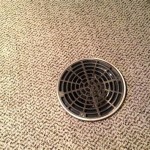What Is A Good Humidity For Basement?
The optimal humidity level for a basement is between 30% and 50%. Maintaining humidity within this range helps prevent moisture-related problems, such as mold growth, musty odors, and structural damage. However, it's important to note that humidity levels can fluctuate depending on factors like the season, climate, and ventilation.
Why Humidity Control Is Important
Excessive humidity in a basement can lead to several issues:
- Mold Growth: Mold thrives in damp environments, and basements are particularly susceptible to mold growth due to their typically cool and humid conditions. Mold can cause respiratory problems, allergic reactions, and damage to building materials.
- Musty Odors: High humidity levels can create a musty odor in the basement, which can be unpleasant and may indicate the presence of mold.
- Structural Damage: Prolonged exposure to excess moisture can damage building materials in the basement, leading to problems like wood rot, drywall damage, and foundation issues.
Monitoring and Controlling Humidity
To ensure proper humidity control, it's important to monitor the humidity levels in your basement regularly. You can use a hygrometer, a device that measures humidity, to determine the humidity level.
If the humidity levels are too high, there are several steps you can take to reduce them:
- Improve Ventilation: Open windows and doors to increase air circulation and reduce humidity. You can also install a ventilation system to ensure continuous air exchange.
- Use a Dehumidifier: Dehumidifiers remove excess moisture from the air. Choose a dehumidifier that is sized appropriately for the square footage of your basement.
- Seal Leaks: Check for and seal any leaks in the basement walls, around windows, or in plumbing fixtures. Leaks can contribute to high humidity levels.
- Consider a Vapor Barrier: A vapor barrier can be installed on the basement floor or walls to prevent moisture from seeping up from the ground.
Benefits of Optimal Humidity
Maintaining optimal humidity levels in your basement offers several benefits:
- Reduced Mold Growth: Lower humidity levels create an unfavorable environment for mold growth, helping to prevent mold-related problems.
- Eliminated Musty Odors: Proper humidity control can eliminate musty odors, creating a more pleasant and healthy environment in the basement.
- Preserved Building Materials: Optimal humidity levels help preserve building materials in the basement, preventing damage and costly repairs.
- Improved Air Quality: Lower humidity levels improve air quality by reducing the presence of moisture and mold spores, which can irritate the respiratory system.
Conclusion
Maintaining proper humidity levels in your basement is crucial for preventing moisture-related issues and creating a healthy and comfortable environment. By monitoring humidity levels, implementing control measures, and adhering to the ideal range of 30% to 50%, you can ensure the well-being of your basement and the overall health of your building.

How To Achieve An Ideal Basement Humidity Of 30 50

Moisture In Basements Causes And Solutions Umn Extension

How To Achieve An Ideal Basement Humidity Of 30 50

What Is The Ideal Basement Humidity Level Epp Foundation Repair

How To Achieve An Ideal Basement Humidity Of 30 50

Ideal Basement Humidity And How To Achieve It Epp Foundation Repair

Overview Dehumidification In The Basement Or Crawl Space

What Should A Basement S Humidity Be

The Ideal Humidity Level For Your Basement Reliable Waterproofing

How To Reduce Humidity In A Basement Thermopro Blog
See Also








